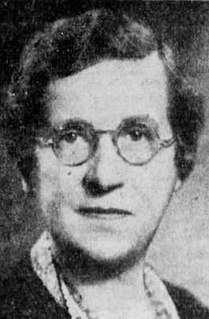
The United Nations (UN) is an intergovernmental organization that was tasked to maintain international peace and security, develop friendly relations among nations, achieve international co-operation and be a centre for harmonizing the actions of nations. The headquarters of the UN is in Manhattan, New York City, and is subject to extraterritoriality. Further main offices are situated in Geneva, Nairobi, Vienna and The Hague. The organization is financed by assessed and voluntary contributions from its member states. Its objectives include maintaining international peace and security, protecting human rights, delivering humanitarian aid, promoting sustainable development and upholding international law. The UN is the largest, most familiar, most internationally represented and most powerful intergovernmental organization in the world. In 24 October 1945, at the end of World War II, the organization was established with the aim of preventing future wars. At its founding, the UN had 51 member states; there are now 193. The UN is the successor of the ineffective League of Nations.

The International Lesbian, Gay, Bisexual, Trans and Intersex Association (ILGA) is an international organization bringing together more than 1,300 LGBTI groups from around the world. It continues to be active in campaigning for LGBT rights and intersex human rights on the international human rights and civil rights scene, and regularly petitions the United Nations and governments. ILGA is represented in 140+ countries across the world. ILGA is accredited by the United Nations and has been granted NGO Ecosoc consultative status.

Shirley Marie Tilghman, is a North American scholar in molecular biology and an academic administrator. She is now a professor of molecular biology and public policy and president emerita of Princeton University.
Anne Bayefsky is a human rights scholar and activist. She currently directs the Touro College Institute on Human Rights and the Holocaust and is a barrister and solicitor of the Ontario Bar. Her areas of expertise include international human rights law, equality rights, and constitutional human rights law.

The Associated Country Women of the World (ACWW) is the largest international organization for both rural and urban women, with a membership of nine million in over 70 countries. ACWW holds a triennial conference and publishes a magazine, The Countrywoman, four times a year.

The Commission on the Status of Women is a functional commission of the United Nations Economic and Social Council (ECOSOC), one of the main UN organs within the United Nations. CSW has been described as the UN organ promoting gender equality and the empowerment of women. Every year, representatives of Member States gather at United Nations Headquarters in New York to evaluate progress on gender equality, identify challenges, set global standards and formulate concrete policies to promote gender equality and advancement of women worldwide. In April 2017, ECOSOC elected 13 new members to CSW for a four-year term 2018–2022. One of the new members is Saudi Arabia, which has been criticised for its treatment of women.
An international non-governmental organization (INGO) has the same mission non-governmental organization (NGO), but it is international in scope and has outposts around the world to deal with specific issues in many countries.To be an NGO means to be independent from governments. They can be split into two different divisions, "advocacy" NGOs which aim to influence governments with a specific goal and "operational" NGOs which provide services. Examples of mandates for an NGO could be environmental preservation, human rights promotions or the advancement of women. NGOs are typically non-for-profit but receive funding from companies or membership fees.

International Women's Year (IWY) was the name given to 1975 by the United Nations. Since that year March 8 has been celebrated as International Women's Day, and the United Nations Decade for Women, from 1976 to 1985, was also established.

The International Alliance of Women is an international non-governmental organization that works to promote women's human rights around the world, focusing particularly on empowerment of women and development issues and more broadly on gender equality. The basic principle of the IAW is that the full and equal enjoyment of human rights is due to all women and girls. It is one of the oldest, largest and most influential organizations in its field. The organization was founded as International Woman Suffrage Alliance (IWSA) in 1904 in Berlin, Germany, by Marie Stritt, Millicent Fawcett, Carrie Chapman Catt, Susan B. Anthony and other leading feminists from around the world to campaign for women's suffrage. The IWSA was headquartered in London, and it was the preeminent international women's suffrage organization. Its emphasis has since shifted to a broad human rights focus. Today it represents over 50 organizations world-wide comprising several hundred thousand members, and has its seat in Geneva.
The World Young Women's Christian Association is a movement working for the empowerment, leadership and rights of women, young women and girls in more than 120 countries. The members and supporters include women from many different faiths, ages, backgrounds, beliefs and cultures. Their common goal is that
[B]y 2035, 100 million young women and girls will transform power structures to create justice, gender equality and a world without violence and war; leading a sustainable YWCA movement, inclusive of all women.
Arvonne Skelton Fraser was an American women's rights advocate and political campaigner. She held the position of Senior Fellow at the Humphrey Institute of Public Affairs, University of Minnesota, and from 1993–1994 was the U.S. Ambassador to the United Nations Commission on the Status of Women. She also managed the political campaigns of her husband Donald M. Fraser during his career, from 1954 to 1979.
The Women's Caucus for Art (WCA), founded in 1972, is a non-profit organization based in New York City, which supports women artists, art historians, students, educators, and museum professionals. The WCA holds exhibitions and conferences to promote women artists and their works and recognizes the talents of artists through their annual Lifetime Achievement Award. Since 1975 it has been a United Nations-affiliated non-governmental organization (NGO), which has broadened its influence beyond the United States. Within the WCA are several special interest causes including the Women of Color caucus, Eco-Art Caucus, Jewish Women Artist Network, International Caucus and the Young Women's Caucus. The founding of the WCA is seen as a "great stride" in the feminist art movement.

Annie Ruth Jiagge, also known as Annie Baëta Jiagge, was a Ghanaian lawyer, judge and women's rights activist. The first Ghanaian woman to become a lawyer, she was also the first woman in Ghana and the Commonwealth of Nations to become a judge. She was a principal drafter of the Declaration on the Elimination of Discrimination Against Women and a co-founder of the organisation that became Women's World Banking.

Eva del Vakia Bowles was an American teacher and a Young Women's Christian Association organizer in New York City. When she began working at the New York City colored YWCA in Harlem, she became the first black woman to be a general secretary of the organization. For eighteen years she organized black branches of the YWCA and expanded their services to community members. She received recognition from former president Theodore Roosevelt for her work during World War I on behalf of the colored Y.
World Conference on Women, 1975 was held between 19 June and 2 July 1975 in Mexico City, Mexico. It was the first international conference held by the United Nations to focus solely on women's issues and marked a turning point in policy directives. After this meeting, women were viewed as part of the process to develop and implement policy, rather than recipients of assistance. The conference was one of the events established for International Women's Year and led to the creation of both the United Nations Decade for Women and follow-up conferences to evaluate the progress that had been made in eliminating discrimination against women and their equality. Two documents were adopted from the conference proceedings, the World Plan of Action which had specific targets for nations to implement for women's improvement and the Declaration of Mexico on the Equality of Women and Their Contribution to Development and Peace, which discussed how nations foreign policy actions impacted women. It also led to the establishment of the International Research and Training Institute for the Advancement of Women to track improvements and continuing issues and the United Nations Development Fund for Women to provide funding for developmental programs. The conference marked the first time that the parallel Tribune meeting was successful in submitting input to the official meeting and became a catalyst for women's groups to form throughout the world.
The World Conference on Women, 1980 or the Second World Conference on Women took place between 14 and 30 July 1980 in Copenhagen, Denmark as the mid-decade assessment of progress and failure in implementing the goals established by the World Plan of Action at the 1975 inaugural conference on women. The most significant event to come out of the conference was that the formal signing of the Convention on the Elimination of All Forms of Discrimination Against Women took place during the opening ceremony of the conference. Marred by conflict and politicization of international and national events which had little to do with women's issues, the conference was viewed by some participants as a failure. They were able to secure passage of a modified World Programme of Action to expand on previous targets to improve women's status, and established a follow-up conference for the end of the decade.

Mary Dingman was an American social and peace activist, who served as a staff member of the YWCA USA and World YWCA to develop programs to improve the working conditions of women and children in the workforce. Traveling throughout the world, beginning in 1917, she organized programs in the United States, Europe, and Asia. In 1931, she joined the pacifist movement and serve as chair of the Peace and Disarmament Committee of the Women's International Organisations for a decade. Turning her attention to the need for world cooperation, she pressed for the formalization of the United Nations, serving as a delegate to the first United Nations conference. She was employed as a child welfare advocate by the UN from 1948 until her retirement in 1954.















